Volume 1 | Number 1 | May 2009
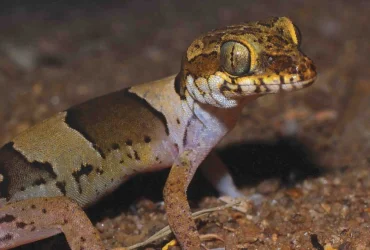 v1i1.7
v1i1.7ISSN: 1800-427X (print)
eISSN: 1800-427X (online)
DOI:10.47605/tapro.v1i1.7
Submitted date: 12 January 2009
Accepted date: 15 January 2009
Published date: 06 April 2009
Pp. 36–38
AN OBSERVATION OF Vanellus indicus BODDAERT, 1783 (AVES : CHARADRIIDAE) FEED ON AN EXOTIC Laevicaulis altae FERUSSAE, 1821 (GASTROPODA: VERONICELLIDAE) AT A HUMAN HABITATION IN SRI LANKA
W. Madhava S. Botejue*
*E-mail: madhavabotejue@gmail.com
Red–Wattled Lapwing is a common resident bird distributed throughout Sri Lanka. Laevicaulis altae is an exotic land slug found in home gardens and cultivations in the lowland wet zone and intermediate zone. L. altae and other exotic snails and slugs are pests, which is a serious and growing problem in Sri Lanka. This observation describes the behaviour of Red–Wattled Lapwing feeding on the exotic land slug at the premises of the Open University of Sri Lanka, Colombo.
eISSN: 1800-427X (online)
DOI:10.47605/tapro.v1i1.7
Submitted date: 12 January 2009
Accepted date: 15 January 2009
Published date: 06 April 2009
Pp. 36–38
AN OBSERVATION OF Vanellus indicus BODDAERT, 1783 (AVES : CHARADRIIDAE) FEED ON AN EXOTIC Laevicaulis altae FERUSSAE, 1821 (GASTROPODA: VERONICELLIDAE) AT A HUMAN HABITATION IN SRI LANKA
W. Madhava S. Botejue*
*E-mail: madhavabotejue@gmail.com
Red–Wattled Lapwing is a common resident bird distributed throughout Sri Lanka. Laevicaulis altae is an exotic land slug found in home gardens and cultivations in the lowland wet zone and intermediate zone. L. altae and other exotic snails and slugs are pests, which is a serious and growing problem in Sri Lanka. This observation describes the behaviour of Red–Wattled Lapwing feeding on the exotic land slug at the premises of the Open University of Sri Lanka, Colombo.
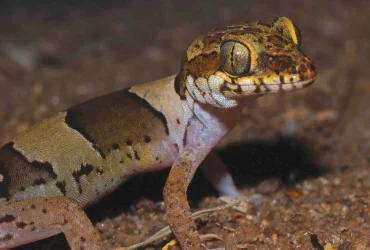 v1i1.6
v1i1.6ISSN: 1800-427X (print)
eISSN: 1800-427X (online)
DOI:10.47605/tapro.v1i1.6
Submitted date: 19 February 2009
Accepted date: 31 March 2009
Published date: 06 April 2009
Pp. 28–35
THE AVIFAUNA OF SRI LANKA : AN OVERVIEW OF THE CURRENT STATUS
Deepal Warakagoda & Udaya Sirivardana*
*Corresponding author. E-mail: birdclub@sltnet.lk
Abstract
Sri Lanka has a high diversity of avifauna, with 236 breeding and 203 purely migrant species. Among the former, 33 species and a further 68 subspecies are endemic to it. Since the systematic study of the birds of the island began in the 18th century intermittent discoveries of breeding and migrant taxa have led to a gradual increase in the total number of taxa known to occur in it. Different taxonomic treatment over time has resulted in the number of endemic species recognised varying from 47 in 1880 to 21 in 1978 and 33 in 2005. The present enumeration of species in the avifaunal list for Sri Lanka is based on the work of the Ceylon Bird Club Rarities and Records Committee, as embodied in Henry (1998) and relative to standard ornithological publications for the region. An authentic list for a country reflects the true diversity of the avifauna within it and contributes to the mapping of correct global distribution especially of widespread or migrating taxa. 46 species of birds in Sri Lanka, including 16 endemic to it, are recognised as Threatened.
Key words : Birds, breeding species, country list, endemic, migrant species, threatened
eISSN: 1800-427X (online)
DOI:10.47605/tapro.v1i1.6
Submitted date: 19 February 2009
Accepted date: 31 March 2009
Published date: 06 April 2009
Pp. 28–35
THE AVIFAUNA OF SRI LANKA : AN OVERVIEW OF THE CURRENT STATUS
Deepal Warakagoda & Udaya Sirivardana*
*Corresponding author. E-mail: birdclub@sltnet.lk
Abstract
Sri Lanka has a high diversity of avifauna, with 236 breeding and 203 purely migrant species. Among the former, 33 species and a further 68 subspecies are endemic to it. Since the systematic study of the birds of the island began in the 18th century intermittent discoveries of breeding and migrant taxa have led to a gradual increase in the total number of taxa known to occur in it. Different taxonomic treatment over time has resulted in the number of endemic species recognised varying from 47 in 1880 to 21 in 1978 and 33 in 2005. The present enumeration of species in the avifaunal list for Sri Lanka is based on the work of the Ceylon Bird Club Rarities and Records Committee, as embodied in Henry (1998) and relative to standard ornithological publications for the region. An authentic list for a country reflects the true diversity of the avifauna within it and contributes to the mapping of correct global distribution especially of widespread or migrating taxa. 46 species of birds in Sri Lanka, including 16 endemic to it, are recognised as Threatened.
Key words : Birds, breeding species, country list, endemic, migrant species, threatened
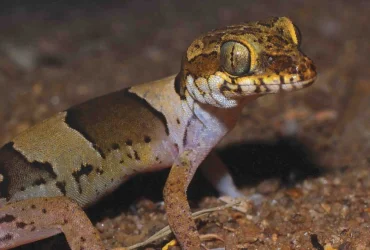 v1i1.5
v1i1.5ISSN: 1800-427X (print)
eISSN: 1800-427X (online)
DOI:10.47605/tapro.v1i1.5
Submitted date: 10 June 2008
Accepted date: 01 July 2008
Published date: 06 April 2009
Pp. 24–27
OVIPOSITIONAL BEHAVIOR OF Calotes ceylonensis MÜLLER, 1887 (REPTILIA: AGAMIDAE) OBSERVED IN THE CENTRAL PROVINCE OF SRI LANKA
W.A.A.D. Gayan Pradeep & A.A. Thasun Amarasinghe*
*Corresponding author. E-mail: thasun.taprobanica@gmail.com
This is the first documented observation of the oviposition of Calotes ceylonensis. The ovipositional behavior consisted of digging of the hole nest to lay the eggs; the laying of the eggs; the scraping of the soil to bury the eggs; the filling of the spaces between the eggs, and the hole nest; the tight compression of the soil, and camouflage the nest.
eISSN: 1800-427X (online)
DOI:10.47605/tapro.v1i1.5
Submitted date: 10 June 2008
Accepted date: 01 July 2008
Published date: 06 April 2009
Pp. 24–27
OVIPOSITIONAL BEHAVIOR OF Calotes ceylonensis MÜLLER, 1887 (REPTILIA: AGAMIDAE) OBSERVED IN THE CENTRAL PROVINCE OF SRI LANKA
W.A.A.D. Gayan Pradeep & A.A. Thasun Amarasinghe*
*Corresponding author. E-mail: thasun.taprobanica@gmail.com
This is the first documented observation of the oviposition of Calotes ceylonensis. The ovipositional behavior consisted of digging of the hole nest to lay the eggs; the laying of the eggs; the scraping of the soil to bury the eggs; the filling of the spaces between the eggs, and the hole nest; the tight compression of the soil, and camouflage the nest.
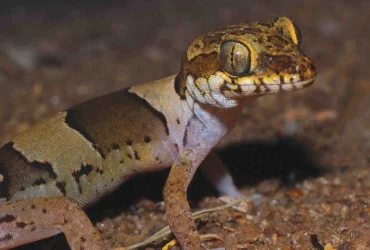 v1i1.4
v1i1.4ISSN: 1800-427X (print)
eISSN: 1800-427X (online)
DOI:10.47605/tapro.v1i1.4
Submitted date: 09 September 2008
Accepted date: 15 September 2008
Published date: 06 April 2009
Pp. 19–23, pls. 5–6.
ON DISTRESS CALLS OF MALE Hemidactylus brookii parvimaculatus DERANIYAGALA, 1953 (REPTILIA: GEKKONIDAE) FROM SRI LANKA
Dieter Gramentz*
*E-mail: liteblu@gmx.de
Abstract
Two types of distress calls were recorded from three male Hemidactylus brookiii parvimaculatus. One type consisted of clicks and one of a single squeak. Twelve calls were analysed. Distress calls comprising a squeak had an average length of 0.070 sec while those comprising clicks averaged 0.329 sec. The difference in length of the two types of calls was significant (P<0.05). Average maximum sound intensity of all calls was 76.9 dB and was reached between 3045 Hz and 7473 Hz (x = 4451 Hz). Maximum frequency varied from 7194 Hz to 16238 Hz having an average of 13393 Hz and the average minimum frequency was 1230 Hz. All squeak distress calls showed harmonics, whereas no harmonics occurred in calls with clicks.
Key words : Bioacoustics, distress call, Hemidactylus brookii parvimaculatus, Sri Lanka
eISSN: 1800-427X (online)
DOI:10.47605/tapro.v1i1.4
Submitted date: 09 September 2008
Accepted date: 15 September 2008
Published date: 06 April 2009
Pp. 19–23, pls. 5–6.
ON DISTRESS CALLS OF MALE Hemidactylus brookii parvimaculatus DERANIYAGALA, 1953 (REPTILIA: GEKKONIDAE) FROM SRI LANKA
Dieter Gramentz*
*E-mail: liteblu@gmx.de
Abstract
Two types of distress calls were recorded from three male Hemidactylus brookiii parvimaculatus. One type consisted of clicks and one of a single squeak. Twelve calls were analysed. Distress calls comprising a squeak had an average length of 0.070 sec while those comprising clicks averaged 0.329 sec. The difference in length of the two types of calls was significant (P<0.05). Average maximum sound intensity of all calls was 76.9 dB and was reached between 3045 Hz and 7473 Hz (x = 4451 Hz). Maximum frequency varied from 7194 Hz to 16238 Hz having an average of 13393 Hz and the average minimum frequency was 1230 Hz. All squeak distress calls showed harmonics, whereas no harmonics occurred in calls with clicks.
Key words : Bioacoustics, distress call, Hemidactylus brookii parvimaculatus, Sri Lanka
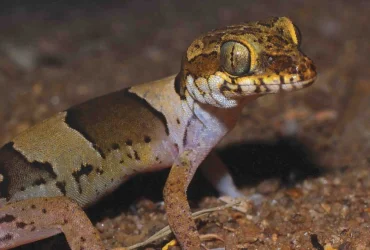 v1i1.3
v1i1.3ISSN: 1800-427X (print)
eISSN: 1800-427X (online)
DOI:10.47605/tapro.v1i1.3
Submitted date: 04 November 2008
Accepted date: 05 January 2009
Published date: 06 April 2009
Pp. 16–18
MUTUALISM IN Ramanella nagaoi MANAMENDRA-ARACHCHI & PETHIYAGODA, 2001 (AMPHIBIA : MICROHYLIDAE) AND Poecilotheria SPECIES (ARACNIDA : THEREPOSIDAE) FROM SRI LANKA
D.M.S. Suranjan Karunarathna & A.A. Thasun Amarasinghe*
*Corresponding author. E-mail: thasun.taprobanica@gmail.com
Ramanella nagaoi is an endemic and vulnerable species of Family Microhylidae distributed in lowland wet zone rain forests and reproduce and live in and around tree hollows. This article presents some aspects of mutualism of R. nagaoi with Poecilotheria ornata and P. (cf.) subfusca thereposid spiders in random field visits during the past seven years. This is the first observation of this symbiotic behaviour.
eISSN: 1800-427X (online)
DOI:10.47605/tapro.v1i1.3
Submitted date: 04 November 2008
Accepted date: 05 January 2009
Published date: 06 April 2009
Pp. 16–18
MUTUALISM IN Ramanella nagaoi MANAMENDRA-ARACHCHI & PETHIYAGODA, 2001 (AMPHIBIA : MICROHYLIDAE) AND Poecilotheria SPECIES (ARACNIDA : THEREPOSIDAE) FROM SRI LANKA
D.M.S. Suranjan Karunarathna & A.A. Thasun Amarasinghe*
*Corresponding author. E-mail: thasun.taprobanica@gmail.com
Ramanella nagaoi is an endemic and vulnerable species of Family Microhylidae distributed in lowland wet zone rain forests and reproduce and live in and around tree hollows. This article presents some aspects of mutualism of R. nagaoi with Poecilotheria ornata and P. (cf.) subfusca thereposid spiders in random field visits during the past seven years. This is the first observation of this symbiotic behaviour.
Hubungi Kami
The ultimate aim of the journal is to provide an effective medium for communication of the latest and best scientific information.
Copyright © 2020 Taprobanica. All Rights Reserved
Jasa Pembuatan Website by IKT




